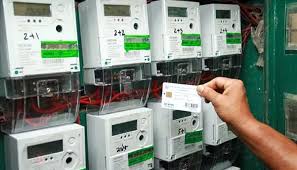The Federal Government is set to receive the first batch of over 3.2 million prepaid electricity meters this April, marking a significant step in its efforts to bridge Nigeria’s metering gap and eliminate the controversial estimated billing system. This development was disclosed by the Minister of Power, Adebayo Adelabu, in a statement released through his Special Adviser on Communication and Media Relations on Sunday.
According to the statement, the initial delivery under the International Competitive Bid 1 (ICB1) will consist of 75,000 meters in April 2025, followed by a second batch of 200,000 meters scheduled for May. These deliveries are part of the Distribution Sector Recovery Program (DISREP), which aims to deploy a total of 3,205,101 meters by 2026 through various procurement models. The program is designed to address critical challenges in Nigeria’s electricity distribution sector, including improving financial viability and service delivery among Distribution Companies (DisCos).
The metering gap has long been a major issue in Nigeria’s power sector. As of December 2024, approximately 5.5 million electricity customers had been metered, representing only 55 percent of the 10.1 million active electricity users nationwide. Despite progress made under government-backed initiatives like DISREP and the Presidential Metering Initiative (PMI), millions of Nigerians remain unmetered. This has perpetuated reliance on estimated billing a practice widely criticized for its lack of transparency and fairness.
To tackle this challenge comprehensively, the Federal Government has committed substantial resources and structured financing to accelerate meter deployment. The ₦700 billion PMI initiative is expected to deliver two million meters annually over five years, leveraging local manufacturing capacity to ensure sustainability and economic benefits for Nigerian businesses. Minister Adelabu emphasized that local manufacturers are central to these efforts, with inspections carried out to confirm their readiness to meet production targets.
The DISREP initiative also highlights the Federal Government’s focus on structured implementation plans and financial commitments aimed at closing the metering gap efficiently. Between December 2024 and June 2025 alone, 1.3 million meters are expected to be installed under DISREP. Additionally, other interventions like the Meter Acquisition Fund (MAF) have provided DisCos with ₦21 billion for meter procurement and installation for unmetered customers under Band A feeders.
While challenges persist in Nigeria’s electricity sector, these initiatives reflect a concerted effort by stakeholders to improve transparency in billing practices and enhance liquidity within the industry. The government remains optimistic that ongoing programs will deliver significant improvements before the end of the year, countering exaggerated narratives about stagnation in metering efforts.
With structured financing mechanisms and strong partnerships with local manufacturers in place, Nigeria’s metering landscape is poised for transformation. The first batch of meters arriving this month signals a step forward in ensuring fair billing practices and addressing inefficiencies that have long plagued the country’s power sector.
